Passion Project: 2000 Vine Street’s ‘Cultural Inheritance’ 'If Vine Street thrives, that’s best for the city of Kansas City.'
Published July 22nd, 2022 at 6:00 AM
Above image credit: Vine Street Brewing. (Tommy Felts | Startland News)The revitalization of the two oldest public works buildings in Kansas City, abandoned since 1978, is nearly complete, according to the leaders of the 2000 Vine Street project.
Once construction is finished, they expect the two neighboring buildings at 20th and Vine to become a “destination” that expands the cultural corridor of the historic 18th and Vine Jazz District.
The spaces are dominated by large windows with cascading natural light, original artwork by Kansas City’s Warren Harvey, graffiti reminders of the buildings’ abandoned days, and contemporary furniture mixed with 2000 Vine’s uniquely vintage architecture. Shimmering gold designs on the exterior of the south building tease the headline-grabbing ventures to come.
Three local business owners joined forces to spearhead the project: Tim Duggan, principal owner of the urban planning and design firm Phronesis; Shomari Benton, real estate attorney and partner at Benton, Lloyd & Chung LLP; and Jason Parson, president and CEO of the public relations firm Parson + Associates.
“My motivation, once Tim brought us to the project, was seeing Vine Street thrive,” Benton said. “Then in the broader perspective, knowing that if Vine Street thrives, that’s best for the city of Kansas City. Ultimately, Kansas City can’t be at its best if Vine’s not at its best.”
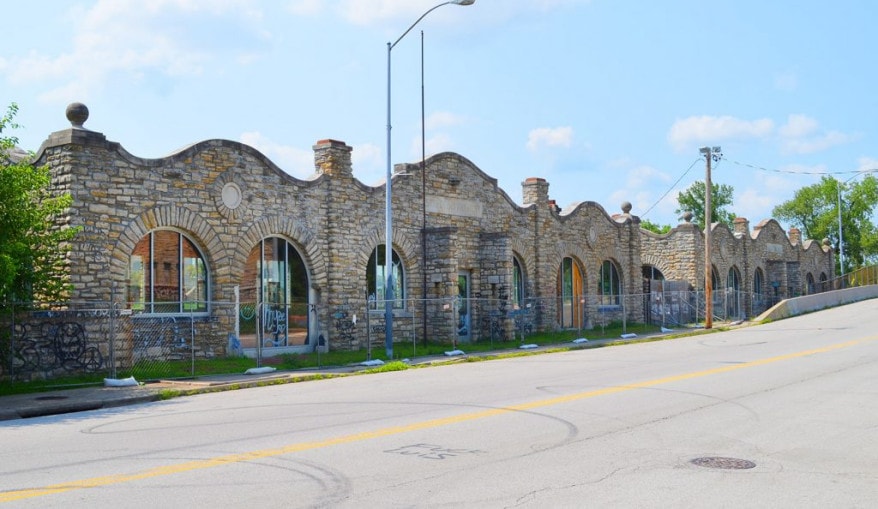
Duggan and Benton met initially as neighbors in the Beacon Hill neighborhood after Duggan moved back to Kansas City several years ago.
Duggan pitched Benton and Parson, who he had known for years, on the idea of purchasing the buildings at 2000 Vine from the city and transforming them into a mixed-use development.
“When the city caught wind that there was someone interested in these buildings, I think they were interested in divesting in those,” Duggan said.
Construction began on the two stone buildings in 1872 and was completed in 1878. For the next 100 years, they housed the departments of water and street, which was later split into public works and parks and recreation. 2000 Vine was officially decommissioned in 1978 and sat unoccupied for four decades.
Fortunately, the group’s mix of skill sets allowed them to self-perform many elements of the overhaul for two buildings in desperate need of renovation.
“We all just made the sacrifice,” Benton said. “It’s a passion project. It’s not for the faint of heart.”
The north building — emblazoned with “Water Department” atop its front doors — is fully leased, Duggan said. Tenants include KC-based digital marketing agency Lillian James Creative, the Warren Harvey Art Gallery, and tattoo artist Keno G Ink, in addition to offices for Benton, Lloyd & Chung LLP and Phronesis.
Inside 2000 Vine Street

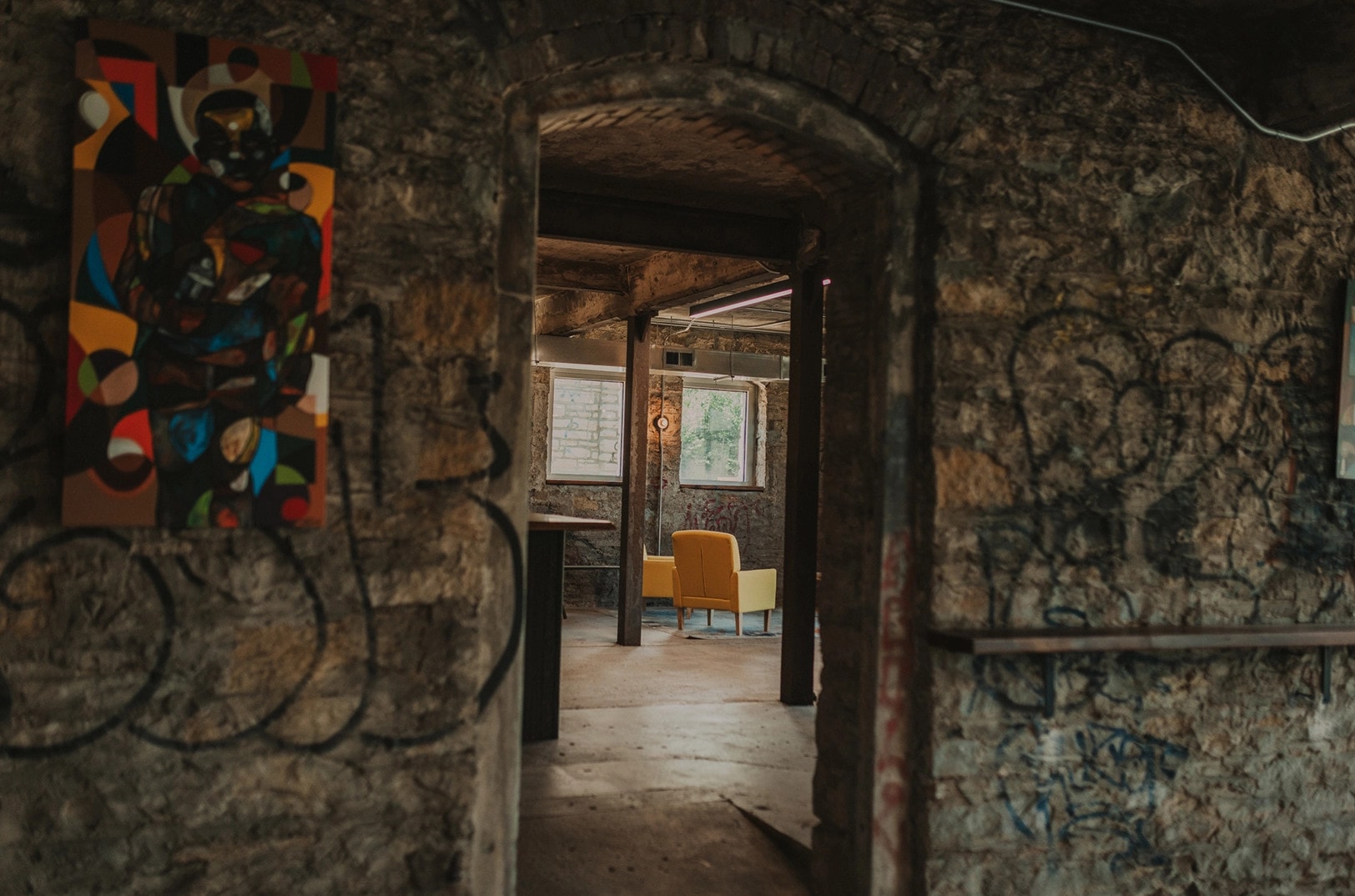




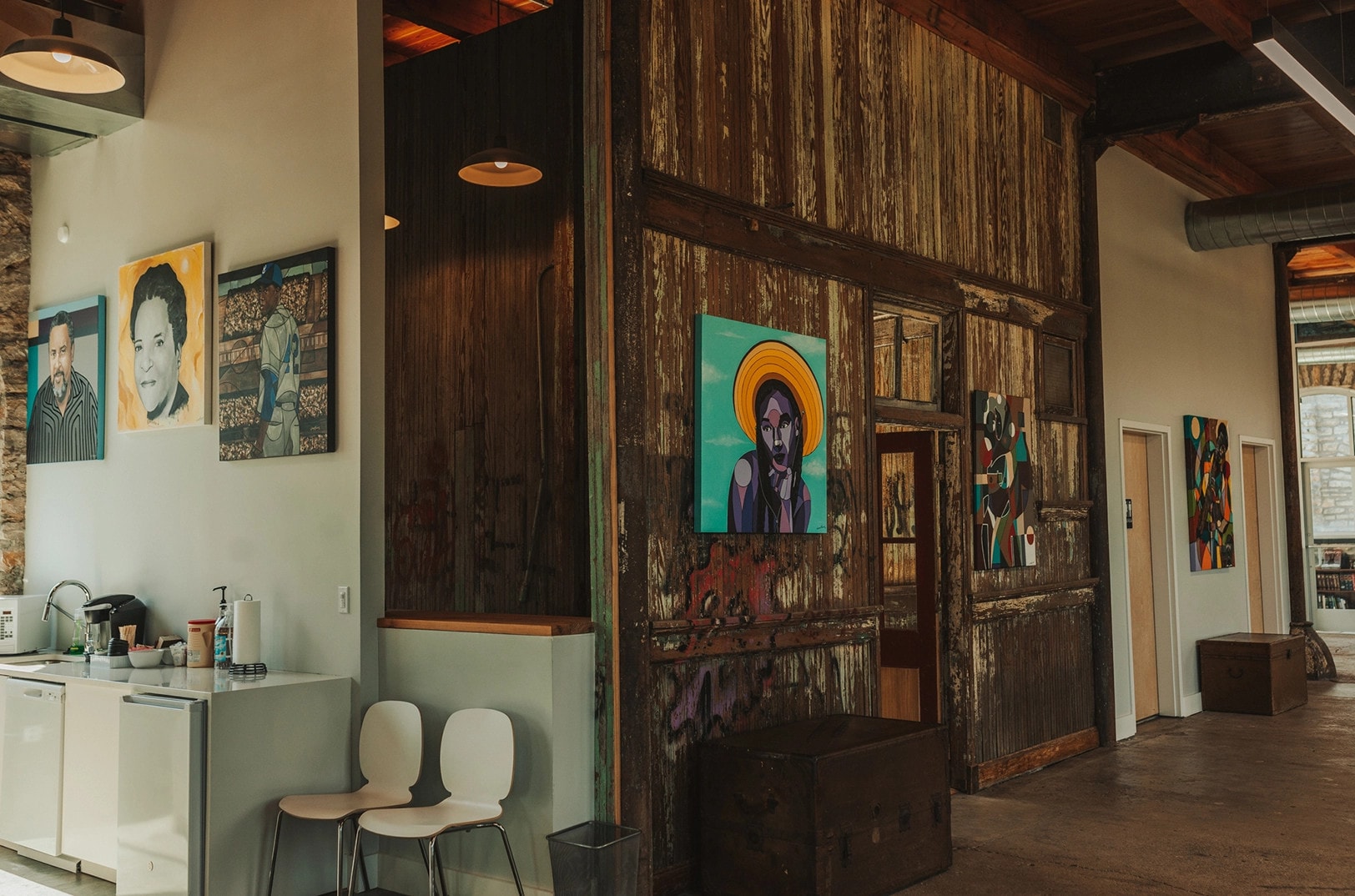

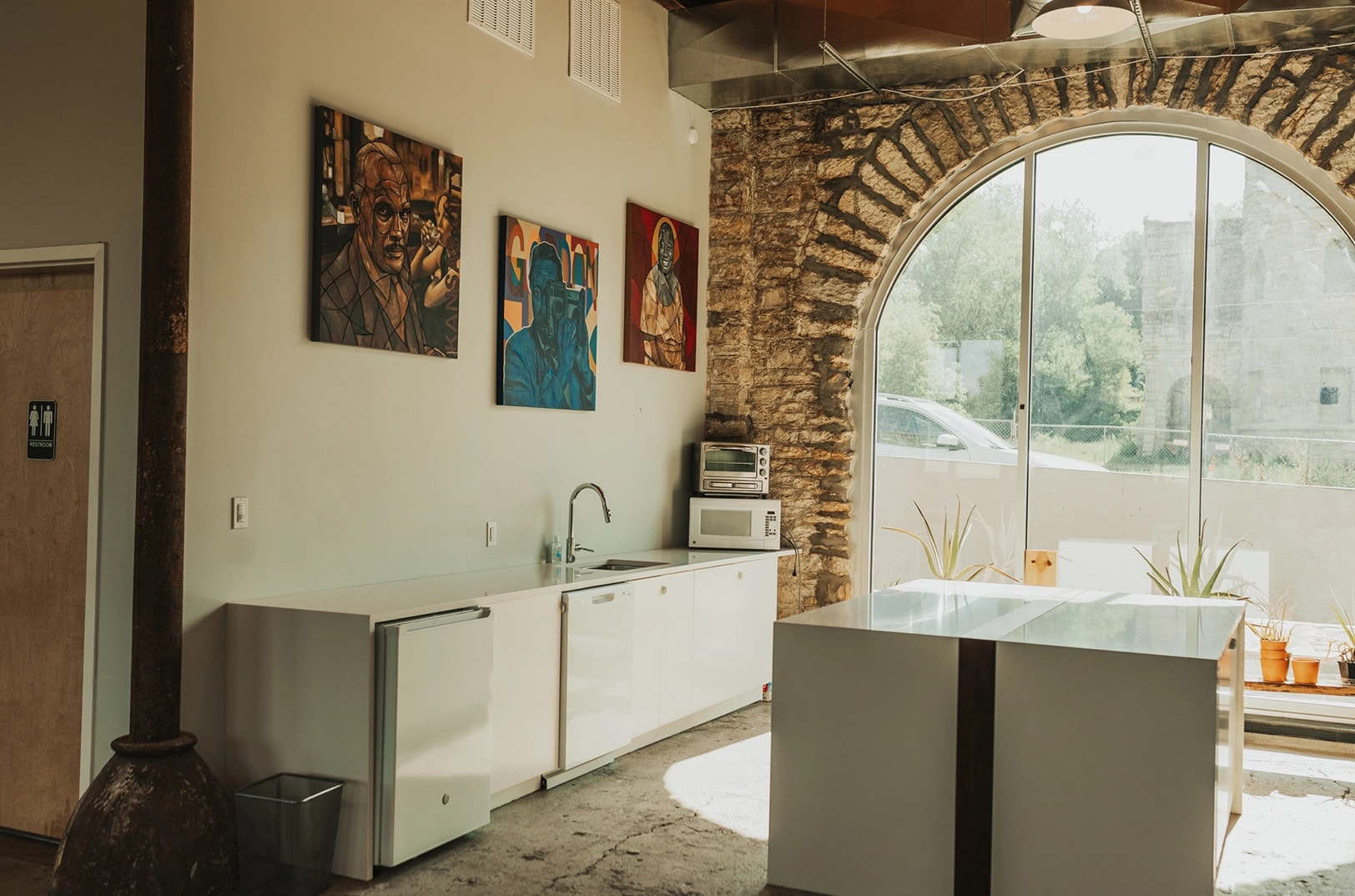
Duggan added that the building will also be used as an event space, both for recurring events like First Fridays, as well as other programming.
“We didn’t anticipate that to be both as big of an opportunity and to evolve as quickly as it has, but to [the] point about these buildings and the architecture, people walk in and they’re pretty enamored by the spaces,” Duggan said.
The south building — the former Street Department — is targeted to open later this year after experiencing some construction delays.
It will be home to Vine Street Brewing Co. — the region’s first Black-owned brewery — and The Prospect KC Urban Eatery, a social enterprise that provides nutritional education, kitchen training, and culinary entrepreneurship support to members of disenfranchised communities.
The plan is to add more tenants to fill out the remaining space and create a mixed-use brewery and beer garden with artisanal food and beverage options, according to Duggan.
In the bigger picture, the entrepreneurs-turned-developers hope that 2000 Vine can be “a piece of the puzzle” in the broader revitalization taking place in and around the 18th and Vine District.
“I would say it’s a historic anchor to a significant community within the city,” Benton said.
“Ultimately, it’s about its location [close] to downtown,” Benton added. “It’s about its cultural inheritance. It’s about its current cultural and geographic value, and a representation of Kansas City’s African-American culture specifically, but also the broader Kansas City culture.”
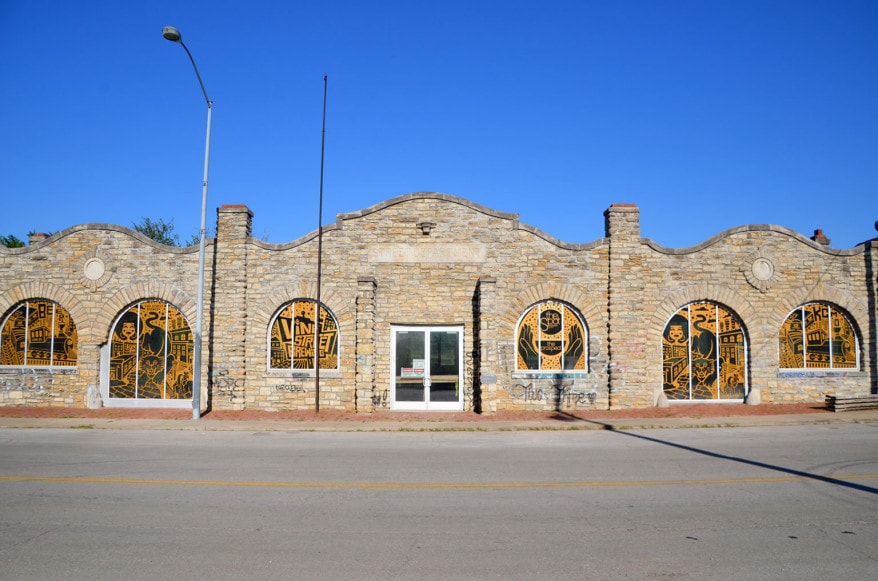
Duggan said he expects to see all that reflected once 2000 Vine fully opens its doors.
“I think we are an urban core node that all different communities and neighborhoods will want to connect to.”
Matthew Gwin is a reporter for Startland News, where this story first appeared. This story is the first in a series from Startland News highlighting entrepreneurs, businesses, and creators leading revitalization and redevelopment efforts in and around the historic 18th and Vine Jazz District. Startland News is a member of the KC Media Collective.



